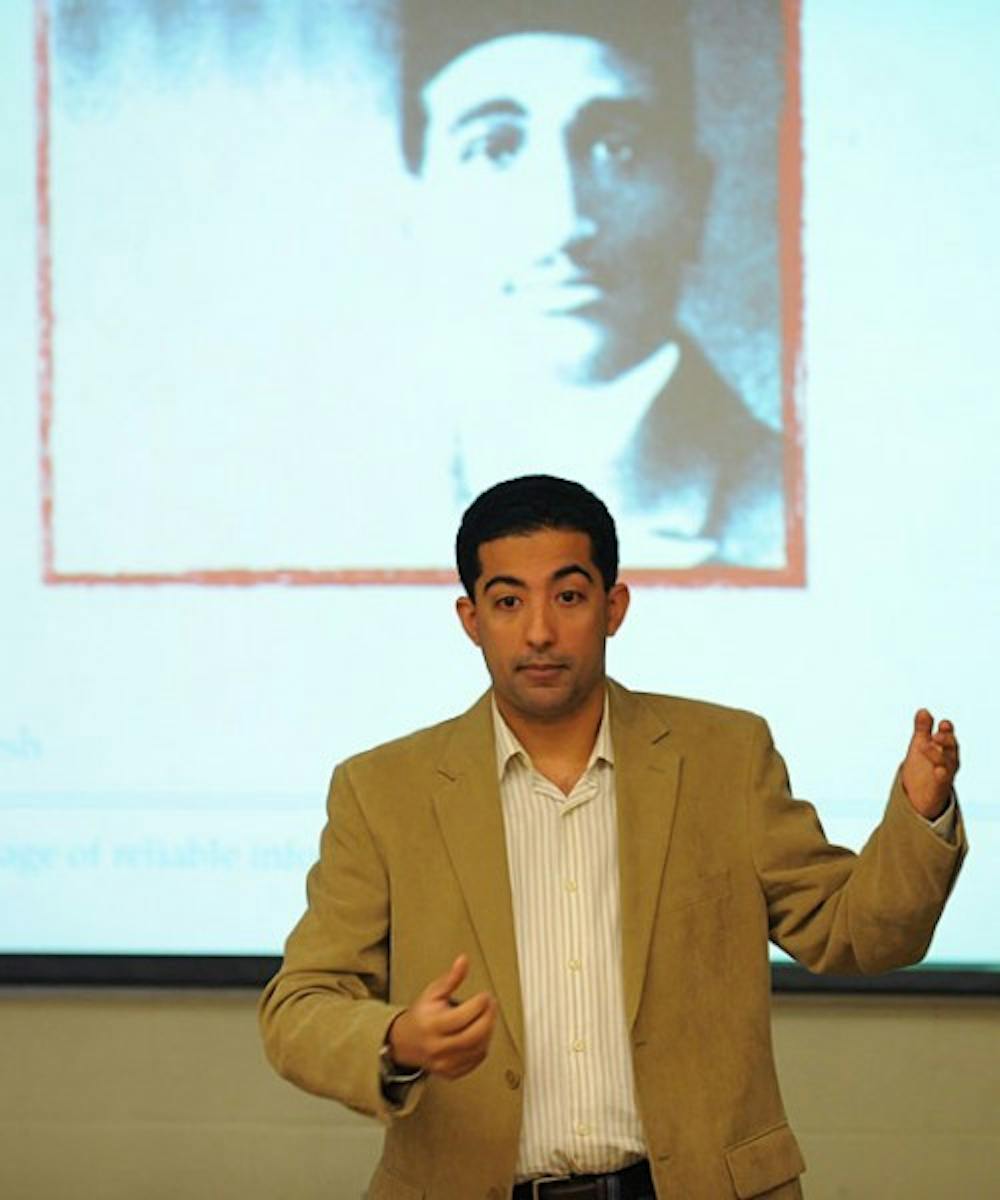Hicham Chami is mourning.
“Arabic music in its purist traditional form is dying,” Chami said. “Preserving it is a matter of historical significance.”
Chami is the founder of the Arabesque Music Ensemble, a group of professional musicians from around the world who play traditional Arabic music.
He spoke to about 15 people Tuesday night in Larsen Hall to discuss the decline and preservation of traditional Arabic music. The music comes from oral tradition, he said.
He plays the qanun, a traditional string instrument. Chami spent 10 years with his music professor and never got a single sheet of music.
It was up to the student to pick up on the music or not, Chami said.
“Over time, a lot gets lost,” Chami said. “The oral tradition is enriching but also detrimental.”
At world music festivals, only about 4 percent of performances feature traditional Arabic music, Chami said, because in Arabic countries there is not enough money being spent on preserving cultural traditions, he said.
Globalization is also a factor contributing to the decline of Arabic music. Fusion with other types of music leads to the loss of the traditional Arabic feel. The music “gets swallowed when you put it with something else,” Chami said.
The solution is recording and documenting Arabic music and educating people about it. Chami said the music also needs to be published and translated so people in other countries can learn about it, he said.
“Just performing the music spreads the word,” Chami said.
UF plans to start an Arabic orchestra this spring, with the first rehearsal Monday, March 15, said Christopher Witulski, a Ph.D. Fellow in the center for African Studies musicology department.
Chami was paid $300 to speak.






